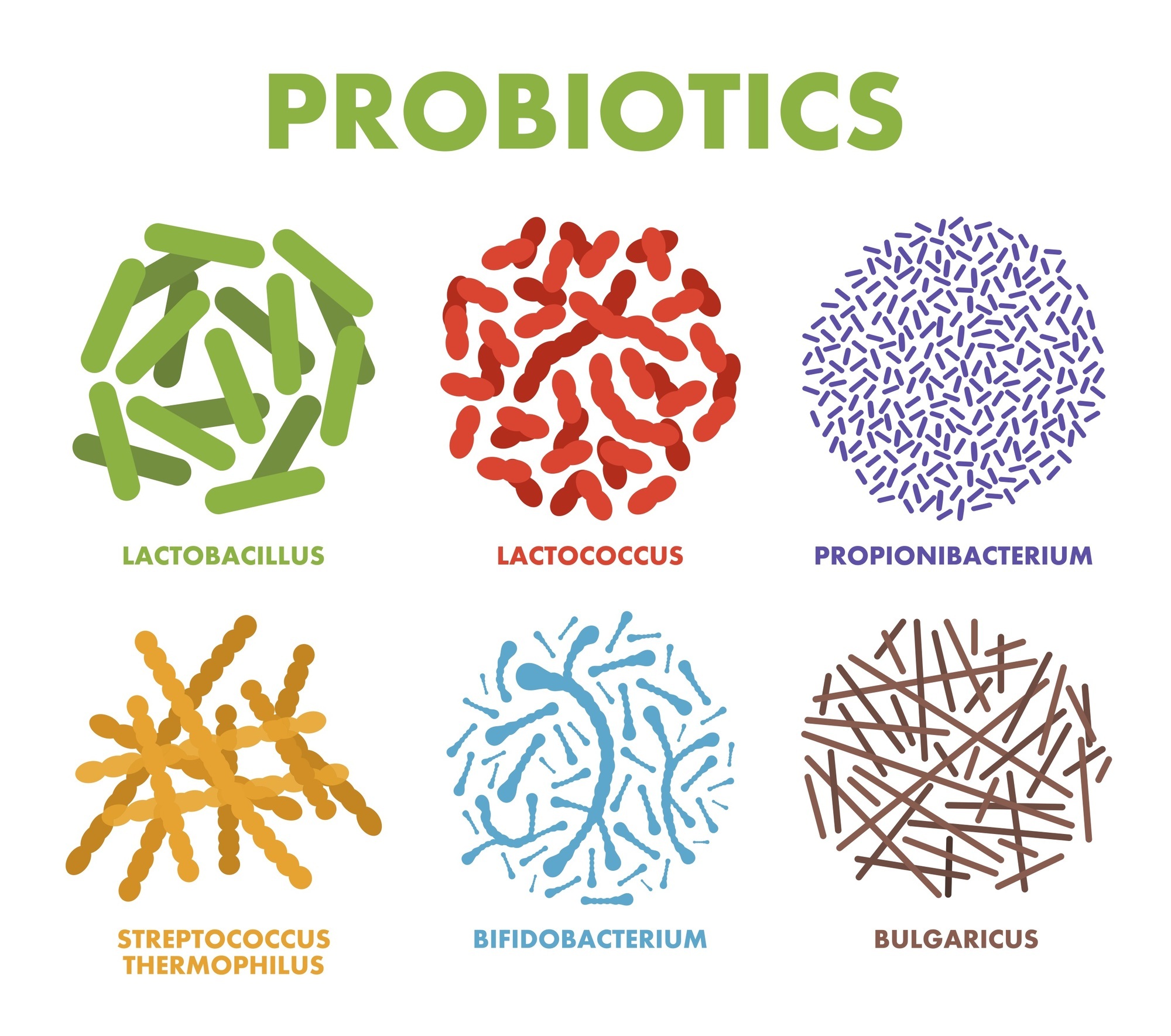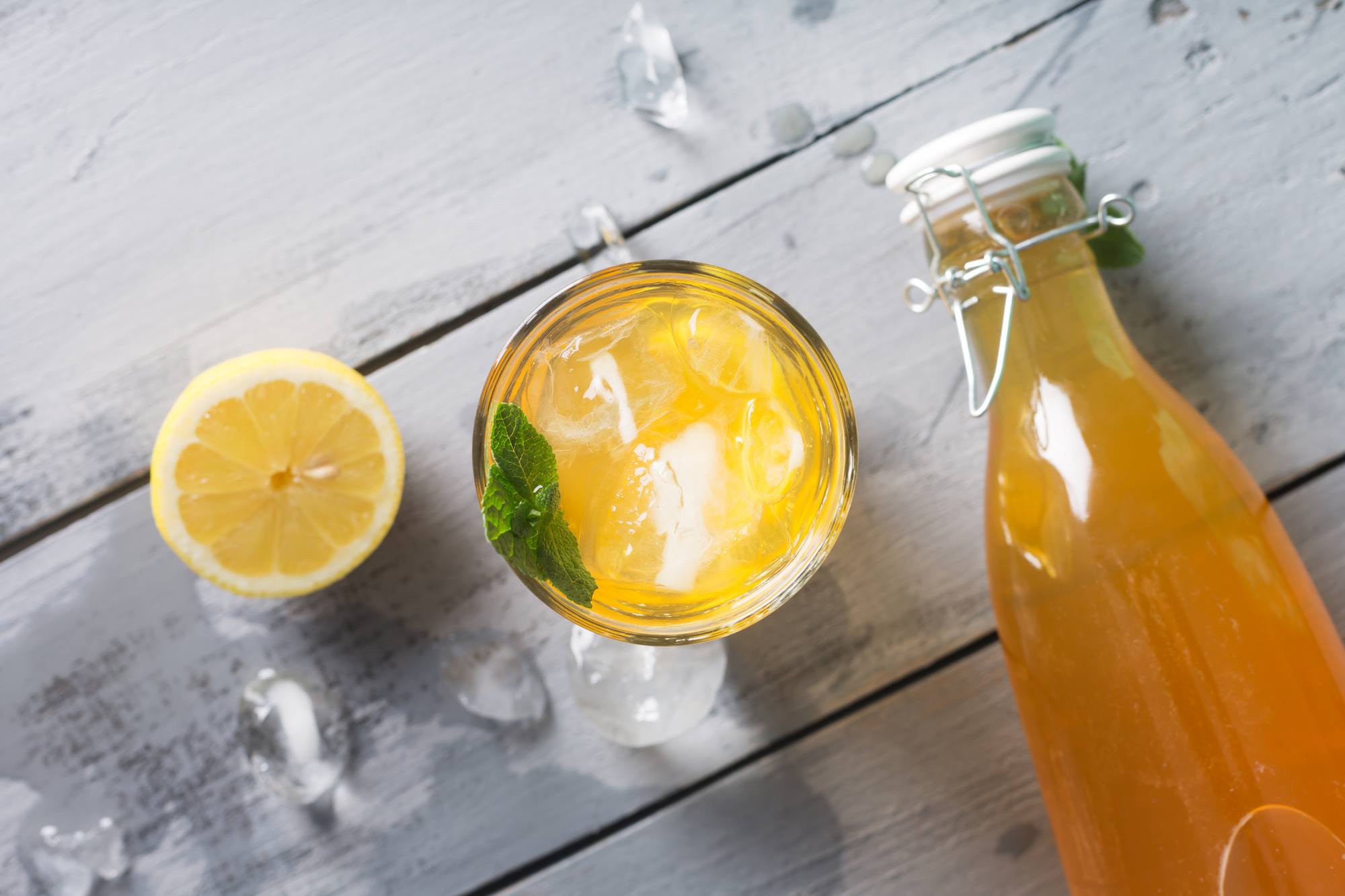
The microorganisms that reside in your gut have a huge impact on both your general health and quality of life.
They are obviously key in helping you to digest food, make vitamins and have a great effect on metabolism, however, intestines actually contain more immune cells than the rest of our body. These in turn, help to defend against respiratory infections, gastroenterological infections and play a role in supporting our cardiovascular system, obesity and diabetes.
It is now found that neurochemicals, essential to our happiness such as dopamine and serotonin, all connect with our intestines.
Recent studies show that certain bacteria were consistent in patients diagnosed with clinical depression. Tests in mice showed that probiotics, Lactobacillus and Bifidobacterium showed a significant reduction in anxiety.
Probiotics are live bacteria and yeasts that are good for your health, especially your digestive system. We usually think of bacteria as something that causes diseases. But your body is full of bacteria, or flora, both good and bad.
Probiotics provide living bacteria that help the body absorb nutrients and keep a healthy balance of beneficial bacteria.
They help to treat conditions like diarrhea, lactose intolerance, eczema, asthma, vaginal infections, and irritable bowel syndrome. They also help with digestion and absorption and generally strengthen the immune system.
A hugely beneficial use of probiotics is to help counter any negative effects from antibiotics.

“I would recommend to any patient who is taking antibiotics, that they should also include a course of probiotics for the following month, to soothe the gut and help to encourage new growth of good bacteria.”
Laurens Maas


Some natural ways to include probiotics are:
- Goat’s milk yogurt which is particularly high in thermophillus, bifudus, and bulgaricus, and can often be infused with extra forms of probiotics like lactobacillus or acidophilus.
- Kefir which a cultured, fermented drink, that tastes rather like yogurt. It is created using a ‘ starter’, a combination of yeasts, milk proteins, and bacteria, similar to the way sourdough bread is created.
- Miso soup which contains Miso, a fermented paste created from salt, soybeans and rice koji. It contains 20 amino acids and many antioxidants. As a probiotic it will help to strengthen your immune system, lower your cholesterol and provide you with vitamin B12.
- Kimchi is a traditional Korean vegetable dish which is growing in popularity. Usually a mix of Chinese cabbage, radish, onion, garlic and spices fermented to create this amazing dish. It is high in fibre, iron and potassium and is an excellent source of vitamins K, C, and B6 and has probiotic qualities. It may also help reduce inflammation and support overall gut health.
- Sauerkraut is also a fermented cabbage dish with was thought to have originated in China over 2000 years ago. It too has probiotic benefits as well as being a rich in vitamins and minerals and a great source of fibre.
- Kombucha, or ‘mushroom tea’ has many beneficial probiotic qualities and not only supports your gut health but also helps reduce inflammation. It’s created by adding key strains of bacteria, sugar and yeast and sugar to black or green tea. This mixture then ferments and in time forms a mushroom like surface to the tea; hence the name. This is a living ‘symbiotic colony of bacteria and yeast’ or ‘SCOBY’ for short. This can then be used to ferment new Kombucha tea or other drinks.
- Alternatively you can purchase supplements. Choose the highest quality that you can afford and check with your health care provider as they may need refrigeration and can lose effect when left at room temperature.

 Phoenix Maas
Phoenix Maas Our Team
Our Team